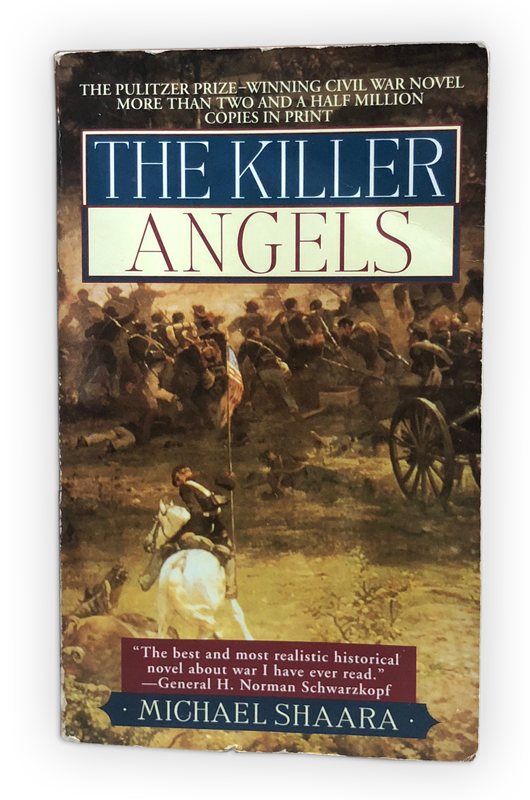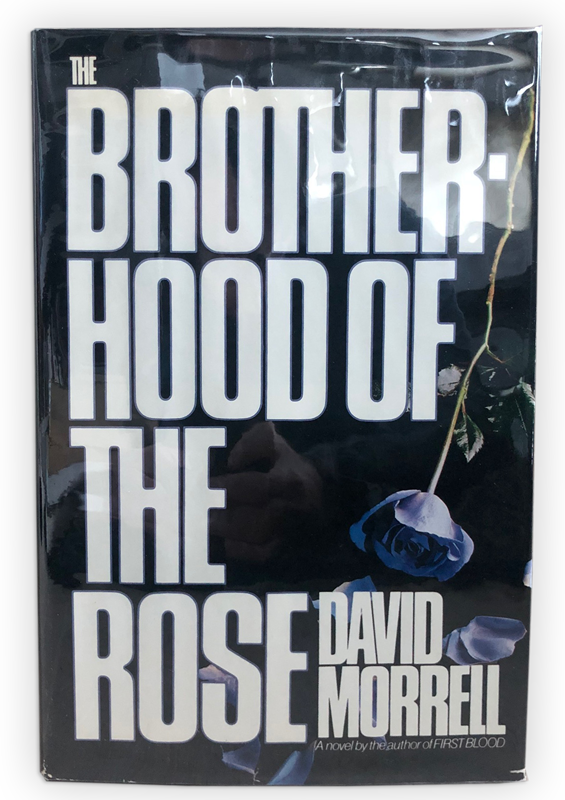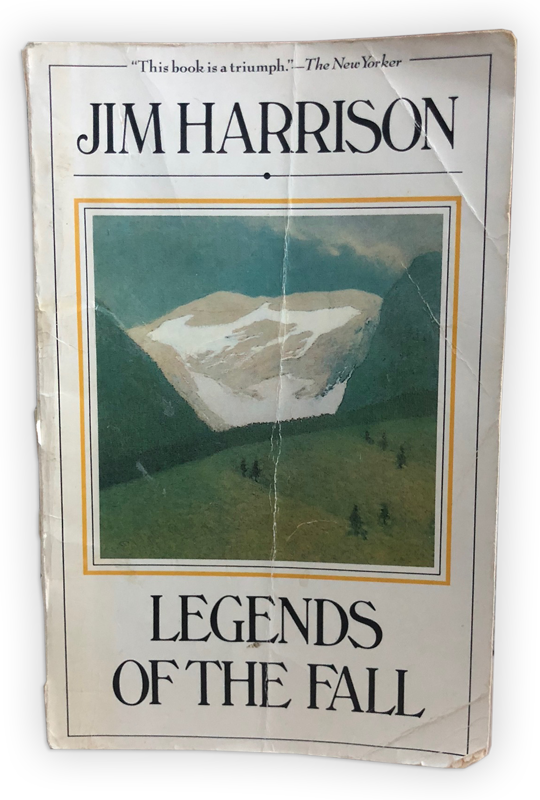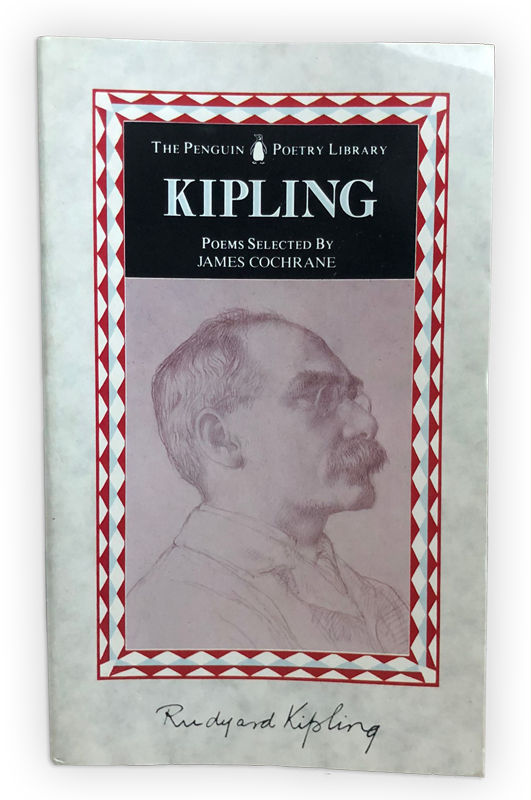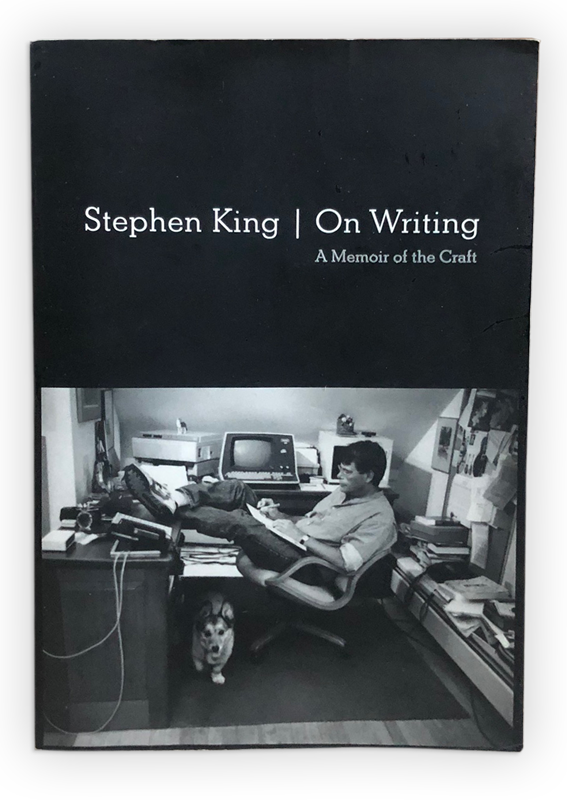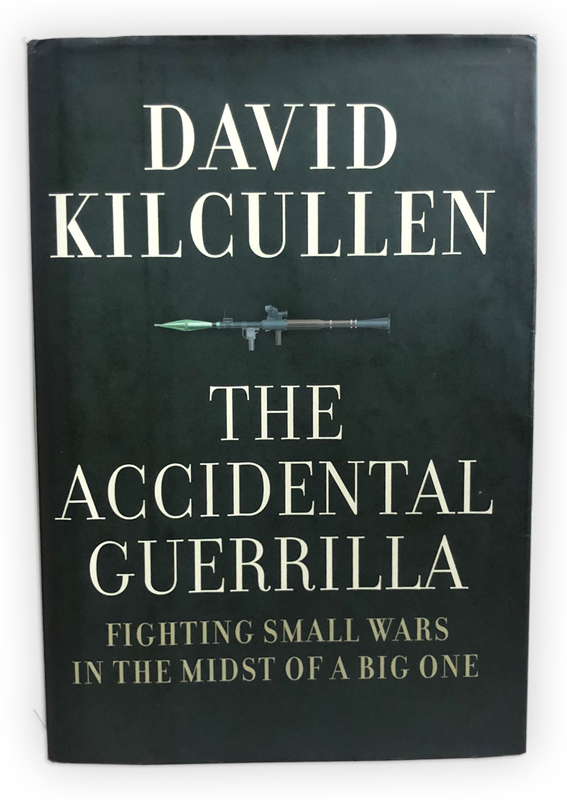JACK CARR READING LIST
JANUARY 2020
January Jack Carr Reading List
It is time for the January reading list! For those of you who are new to my newsletter, each month I highlight six books from my reading list along with information on why the book was impactful to me along my journey. Some will be selections from a professional reading list I was asked to put together for the Naval Special Warfare Center before I retired from the SEAL Teams, and others will be literature I enjoyed at various stages of my life. There is nothing I like more than discussing books and reading. Enjoy!
For additional details on the books, why I think they are important, and the impact they had on my development as a combat leader and writer, keep reading. This blog is for you.
The January books are:
- The Killer Angels by Michael Shaara
- The Brotherhood of the Rose by David Morrell
- Legends of the Fall by Jim Harrison
- If by Rudyard Kipling
- On Writing by Stephen King
- The Accidental Guerrilla by David Kilcullen
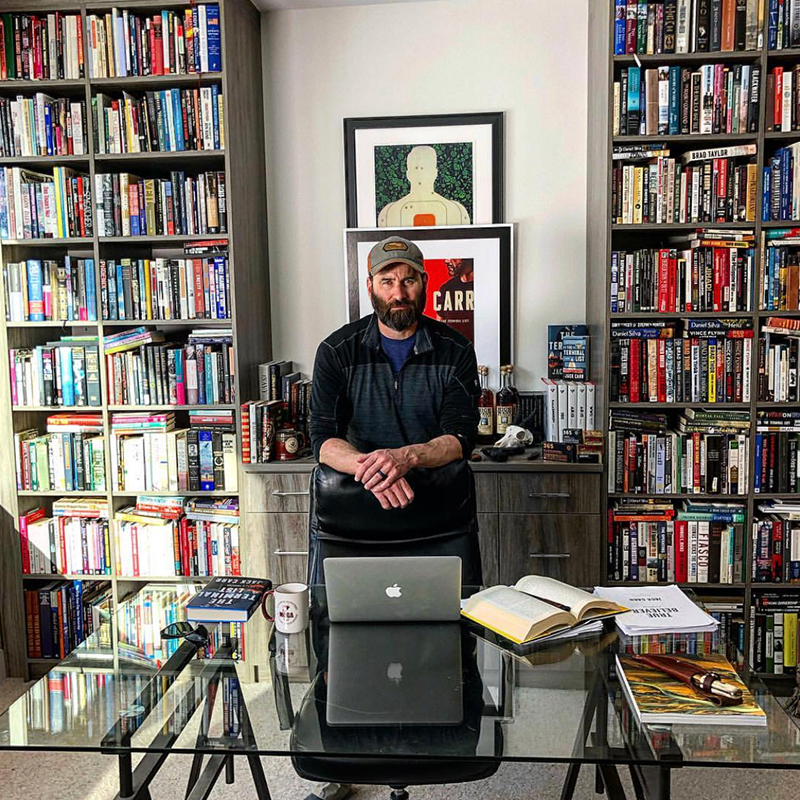
There is nothing I like more than discussing books and reading. I look forward to sharing my thoughts!

There is nothing I like more than discussing books and reading. I look forward to sharing my thoughts about them with readers!
The Killer Angels by Michael Shaara
The story of the Battle of Gettysburg told as historical fiction through the eyes of those who fought it, The Killer Angels should be read by every American. I have never read a novel that humanizes war in such a profound way. When I pulled it off my shelf for January’s reading list, I found one corner turned down. I turned to it and realized why I marked it years ago. It reads, “Far back in the woods there was still a fog in the trees, caught in the branches like fragments of white summer, and Lee remembered: Bow down Thy Heavens, O Lord, and come down, Touch the mountains, and they shall smoke. He closed his eyes. Blessed be the Lord my strength, which teacheth my fingers to fight and my hands to war…He left Longstreet and rode toward the sound of the guns.”
The Brotherhood of the Rose by David Morrell
The first in a trilogy that includes The Fraternity of the Stone and The League of Night and Fog, The Brotherhood of the Rose was the first thriller I read that mentioned SEALs. I had already decided I would one day test myself in their ranks but when you read The Brotherhood of the Rose in junior high school and the creator of Rambo writes what he did about SEALs in the pages of the most engrossing novel you’ve ever read, it cements you on your path. Not only did this novel confirm I was focused on the right profession but also confirmed that I would one day follow David Morrell’s path into the writer’s fray.
His goal with this work was to combine the best of UK and US spy-novel traditions, which he did. There were thrillers before The Brotherhood of the Rose and then there were thrillers after. It stands as one of the best thrillers ever written. One of my favorite memories from my youth is reading this novel and knowing that one day I’d serve my country in uniform as a SEAL and then write thrillers. Thank you to my friend, David Morrell, for setting me on my path.
Legends of the Fall by Jim Harrison
“Late in October in 1914 three brothers rode from Choteau, Montana, to Calgary in Alberta to enlist in the Great War…” And so begins Jim Harrison’s classic novella Legends of the Fall. Hauntingly beautiful in its prose and scope, Legends would forever distinguish Harrison as a true master and one of the greatest writers of his generation. Published in a collection containing Revenge and The Man Who Gave Up His Name, these three novellas speak to us because in each of the protagonists we see a bit of ourselves. I admit to being a fan of the film adaptations. Legends of the Fall starred Anthony Hopkins, Brad Pitt, Aidan Quinn, Julia Ormond, and Henry Thomas. Revenge starred Kevin Costner, Anthony Quinn, and Madeleine Stowe.
If you have not read Harrison, start a fire, pour a strong drink, and savor the moments you spend immersed in his work. Jim Harrison on life: “In a life properly lived, you’re a river. You touch things lightly or deeply; you move along because life herself moves, and you can’t stop it; you can’t figure out a banal game plan applicable to all situations; you just have to go with the ‘beingness’ of life.” Jim Harrison on writing: “A large part of writing is a recognition factor, to have read enough to know what good writing is.” Jim Harrison passed away on March 26th, 2016. I would have loved to have spent a day afield with him. As fitting a tribute as I’ve ever read for an author was penned by Bernard Levin of the Sunday Times of London: “Jim Harrison is a writer with immortality in him.”
If by Rudyard Kipling
“If you can keep your head when all about you
Are losing theirs and blaming it on you…
If you can fill the unforgiving minute
With sixty seconds’ worth of distance run,”
These words from my favorite poem, “If,” have helped guide my life both in and out of uniform. One would be hard pressed to find a poem infused with more wisdom than Kipling wove into his four-stanza tribute to The Jameson Raid in the Boer War. Take a few moments to read the entire poem without the distractions of the digital world. Then read it again. Perhaps share it with your children. Return to it throughout the year and let its lessons sink into your soul. Each and every word continues to enrich my life. I hope it will do the same for yours.
On Writing by Stephen King
I only read a few “how to” books about writing before I put pen to paper and fingers to my MacBook. I grew up reading everything I could in the genre and credit the authors I read during those formative years as my professors in the art of storytelling. I continue to believe one can spend too much time researching “how” to do something. At some point you need to start actually doing it. That being said, there are a few books on the craft that were invaluable. On Writing was one of those books. I read it once and had it within view on my desk along with a few others to provided inspiration through their proximity as I wrote The Terminal List. Much more than a “how to” book, On Writing is a memoir from one of the most successful authors of all time. Read it. Take notes. Then get to work!
The Accidental Guerrilla by David Kilcullen
I first became aware of Dr. David Kilcullen when I was fighting in Iraq in 2005/2006, probably through the online Small Wars Journal that was gaining prominence at the time among those on the ground engaged at the tactical level. This was a period when senior level leadership refused to even say the term “insurgency.” He published his “Twenty-Eight Articles” of Counterinsurgency during this timeframe and I was immediately taken with his command of the subject, backed up by practical experience. We would meet a few years later and have since had many discussions on countering insurgencies at the tactical, operational and strategic levels. If you are familiar with his work, you will find his influence woven throughout my novels. I am proud to call him a friend. Without a doubt, I was a far better combat leader because of his influence. The Accidental Guerrilla deals with fighting localized conflicts in the context of a larger, globalized war. Required reading.

